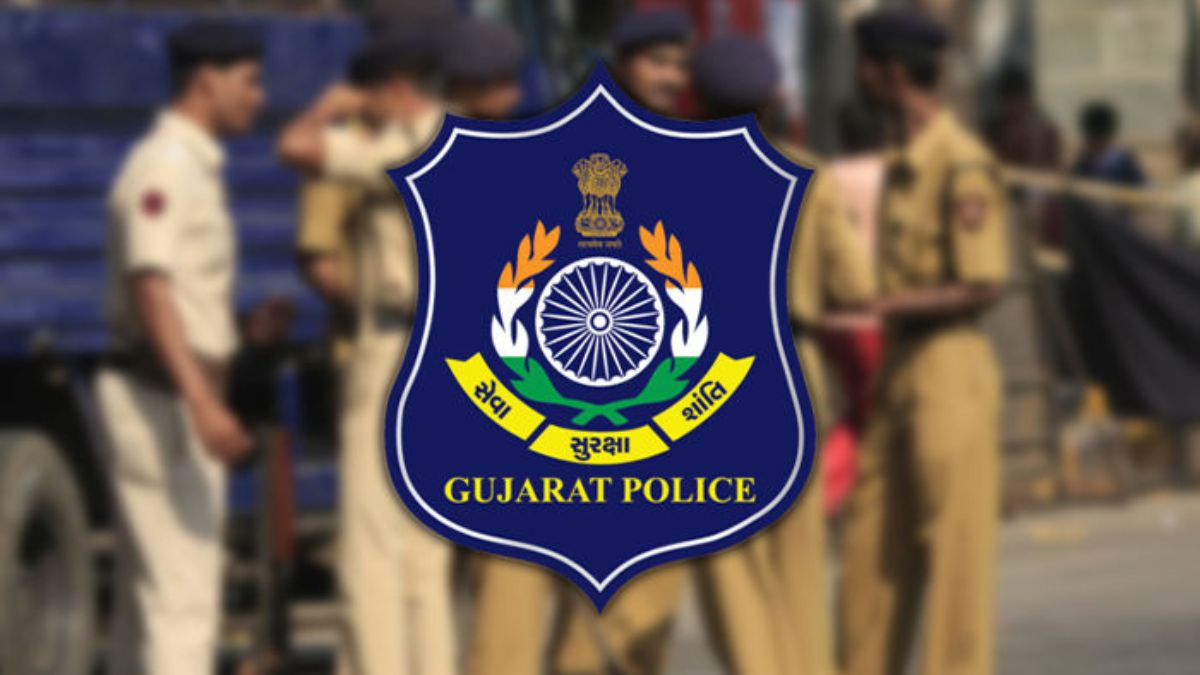Bangladesh Crisis Halts Ahmedabad Crime Branch’s Crackdown
The operation, launched several months ago, aimed to dismantle an extensive network of illegal immigrants involved in organized crime, including prostitution, hawala transactions, and drug trafficking. However, recent developments in Bangladesh have brought the operation to a sudden standstill, raising concerns about the future of law enforcement efforts in Ahmedabad.

Advertisement
Ahmedabad : In a significant setback, the Ahmedabad Crime Branch has been compelled to halt its high-profile operation targeting the Bangladeshi crime nexus in the city due to political upheaval in Bangladesh. The operation, launched several months ago, aimed to dismantle an extensive network of illegal immigrants involved in organized crime, including prostitution, hawala transactions, and drug trafficking. However, recent developments in Bangladesh have brought the operation to a sudden standstill, raising concerns about the future of law enforcement efforts in Ahmedabad.
According to sources within the Crime Branch, the operation was meticulously planned, targeting illegal Bangladeshi nationals who have infiltrated key areas of Ahmedabad, including Chandola, Maninagar, Narol and Vastral. Over the years, these areas have become hotspots for illegal activities, with Bangladeshi nationals allegedly operating large-scale criminal enterprises. The Crime Branch’s mission was clear: to root out these illegal elements and restore order. Small-scale actions had already begun, and the groundwork was being laid for a broader crackdown.
However, the timing of the operation coincided with a sudden coup in Bangladesh, sparking a wave of political instability that has strained diplomatic relations between India and Bangladesh. This unforeseen turmoil has complicated the Crime Branch’s efforts, forcing them to temporarily suspend their activities to avoid escalating tensions between the two countries. The delicate political equation has left the Crime Branch in a precarious position, balancing the need for law enforcement with the broader implications of international diplomacy.
This setback comes at a time when the Ahmedabad Crime Branch is seeking to rebuild its credibility after years of dormancy. Once known for its decisive actions against organized crime, the Crime Branch has struggled in recent years due to internal and external pressures. A turning point came in 2019 when a murder within the Crime Branch’s premises cast a shadow over the agency, leading to intense scrutiny and skepticism of its operations. Administrative oversight tightened, and officers grew wary of taking on major cases, effectively reducing the once-powerful agency to the level of a routine crime prevention bureau.
Despite these challenges, there are signs of a revival within the Crime Branch. Under the leadership of JCP Sharad Singhal, the agency has begun to rebuild its team and regain its operational edge. Singhal, known for his strategic mindset and integrity, has earned the trust of his officers. Working alongside him is DCP Ajit Rajian, a seasoned officer with an impressive track record, including handling the Khambhat riots and navigating complex legal directives, such as clearing city traffic on the orders of the High Court. Rajian’s expertise, particularly in cybercrime, has been a valuable asset to the Crime Branch.
Another key figure in this resurgence is ACP Bharat Patel, one of Gujarat’s most experienced officers in organized crime control. Patel’s deep-rooted network of human intelligence and his ability to operate on the ground level make him a critical player in the Crime Branch’s renewed efforts. Together, these officers represent a cohesive unit that is determined to restore the agency’s reputation and effectiveness.
While “Operation Bangladeshi” remains on hold, sources close to the Crime Branch suggest that the agency is preparing for a series of major operations in the near future. The newfound internal coordination and leadership within the team are expected to drive these efforts forward, signaling a possible comeback for the Crime Branch as a formidable force against organized crime in Ahmedabad.
The current pause is seen not as a defeat but as a temporary delay, with the Crime Branch poised to strike back once the political landscape stabilizes. As the agency waits for the green light, the question remains: will the Crime Branch finally reclaim its position as Ahmedabad’s vanguard against crime, or will political challenges continue to hold it back?
Advertisement

